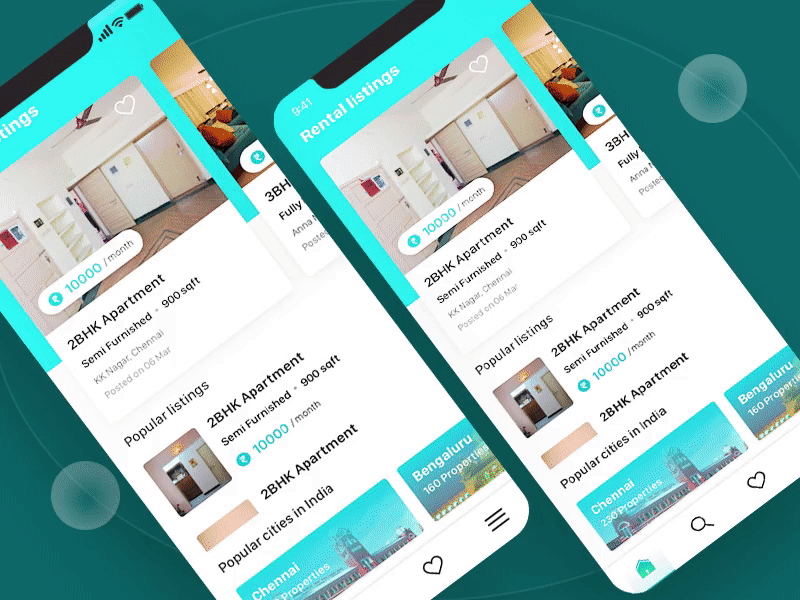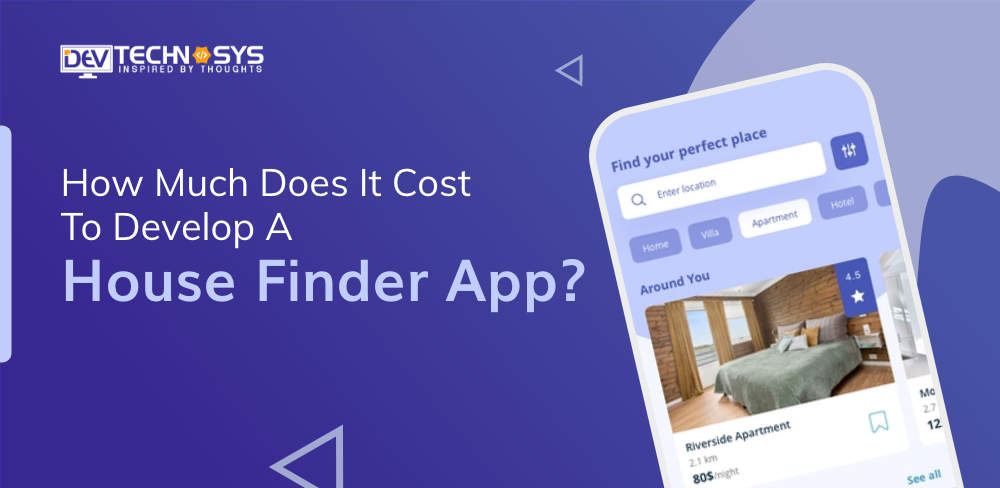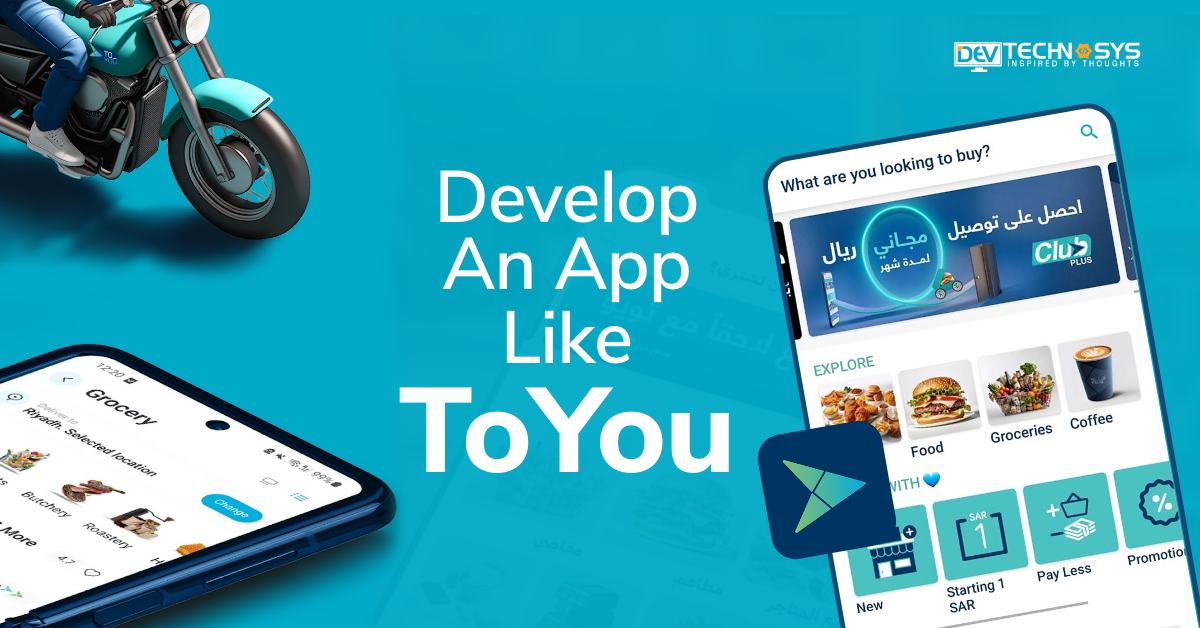Are you looking to develop a house finder app? Then you have reached the correct place. In this blog, we will discuss the cost to develop a house finder app.
House finder, like all other industries, is constantly evolving to keep up with digital trends and changing consumer preferences. You know the difficulty of obtaining a potential client if you’re a realtor, or own a business that deals with properties.
It is important to meet clients in their cities, organize meetings, show that your offer is the best and then enter into difficult negotiations.
However, it is not guaranteed that you will close the deal. All these headaches might mean that the leads will end up with your competitors. Tell them what you have to offer and they may be able to close the deal at a lower price. Your efforts have now been wasted!
But, the times are changing. Mobile apps are becoming more popular among realtors, making it easier to retain and attract leads.
By 2022, more than 40% of individuals will do real estate searches online, predicts the National Association of Realtors (NAR). This makes it mandatory for all house finders to have a presence on both mobile and online.
Many budding entrepreneurs have found the house finder app development sector lucrative after the success of apps such as Zillow, Trulia and Zumper.
This industry is thriving and there are many opportunities for those who have a plan of action. You’ve come to the right spot if you are also looking to start your own business in the mobile house-finder market. We will be discussing the cost to develop a house Finder App.
So let’s begin.
What is a House-Finder App?

A house finder app is a web, mobile, or desktop application that allows users to search for and browse properties to purchase. A house finder app typically includes features like an address lookup function, the ability to view photos and floor plans for each property, as well as information about the surrounding area.
These house finder apps can be used in conjunction with other real-estate and property management apps.
Features to Consider While Developing a House Finder App
Features are the most vital part of app development. So let’s discuss the features that you must consider for the cost to develop a house finder app.

1. Seamless App Onboarding
It is essential to make your app easy to use. Users will not abandon your app if the onboarding process is simple. Onboarding should make it easy for users to understand the app’s function. You must make it easy for customers to navigate your app, especially in the initial steps. Keep things simple. Social media integration is another option. This allows your users to login and register directly from the platform.
2. Different user panels
Depending on the business model, the cost to develop a house finder app can have many types of users. An app can be used to serve buyers, sellers, house finder agents and homeowners as well as mortgage agents and other types of users.
You will need to create a user panel depending on the stakeholder you are serving. Buyers should be able to search for properties, get quotes, talk with agents and other functions through the buyer panel.
Sellers should also be allowed to list properties and negotiate with buyers. This depends on the app’s business model. Each panel should be easy to use and keep users engaged.
3. Database
Every type of app needs a database. A database is required to store and process information within your app. You will need to process and save a lot of information about different property owners, locations, prices, potential buyers, images of the property, and other details. It doesn’t matter which business model you use, the data will only increase once your app is launched.
A strong database is essential. Your app’s success rate will increase the more current and extensive your database. You should therefore be careful about choosing your data source and make sure to integrate a database with servers that can scale to your app’s growth.
4. Advanced Search Filters & Categories
Your app’s user base and property listings will grow with the passing of time. Users will find it difficult to find the right properties according to their needs after a certain point. This is where customization comes in.
It will not only increase the relevancy of your mobile house finder app but also personalize the app’s user experience by allowing users to filter out the most suitable options based on their preferences, such as location and budget. This is how the cost to develop a house finder app makes it easy for users to find the perfect property.
5. Locate & Maps
Map integration is a must-have feature in a mobile house finder app. It adds value to your customers’ experience. This is your opportunity to assist users in reaching the property location at the right time, if they wish to inspect the property or meet with the seller.
It is possible to show nearby locations on a map. You can also provide useful information such as the crime rate, average income of residents, schools and banks, etc.
6. Wish List or Favorites
A wishlist, just like an eCommerce app is a must-have for a mobile house finder app. It is not possible to buy an item from any app right after seeing it, and without first exploring the property.
How can someone buy such a property? It is crucial that they have the option to save their favorite properties and then take the time to evaluate them. This feature will make it easier for customers to purchase property by allowing them to view the properties from anywhere they choose.
7. Push Notifications
Push notifications are crucial to making your app a success. This feature is a great benefit for your business. It lets you stay in the forefront of your users’ minds whenever you need. You may include this function in your house-finding app. It will allow you to update users on everything they are interested in. This will increase conversions and revenue. This is how Zillow makes push notifications work for consumers.
8. Virtual Tour
The Virtual tours have become an essential part of house finder applications after the pandemic. Virtual tours can be enabled by technologies like Augmented Reality or Virtual Reality.
These enable users to visit the property virtually before making a purchase. This feature can have a significant and positive effect on your app’s revenue and engagement.
This was the list of must-have features for a house finder application. The cost of developing a house finder app depends on the multiple features you choose to include.
Advanced Features of House Finder App
Now that you know the basic features of the house finder app. Next, let us look at what advanced features cost to develop a house finder app that can be added to your app to make it stand out.
1. Chatbots
Chatbots can be integrated into real estate apps to answer consumers’ questions 24 hours a day. You can answer consumers’ most frequently asked questions and provide information about the app’s features and services. You will also save money on customer support.
2. Business Intelligence
Real estate applications require a lot of data in order to reach the right people at the correct time. These apps also have large databases of property listings they must manage, filter, filter, and present.
You need to analyze this data in order to reach the right customers, run ads and offer seamless user experience. Business Intelligence is the collection of all the insights you get from these data. This is an essential component to many businesses’ success.
3. AR/VR
Your users will be able to see the property in 3D. This will increase the speed of your customers’ buying decisions. This feature will also increase customer engagement as customers will spend more time on your app. These features will require you to invest a bit more in order to integrate them into your app.
Now that we know the basics of cost to develop a house finder app, let’s learn more about the technology stack you will need to create such an application.
Tech Stack Required for The Development of House Finder App
The technology stack is crucial in the creation of an app for house finder companies. You need the right technologies to ensure your app is robust and efficient. We have listed the technologies house finder app developers use in order to create top-quality house finder apps.
| Platform | Technology/Tools |
| Application Design | Adobe Photoshop and Canvas Flips |
| iOS Application Development | Swift/Objective C and Mac OS, iPhone SDK |
| Android Application Development | Java, JDK and SQLite. |
| Backend Development | PHP and MySQL |
| API for Video Calling | Twilio |
| Database | CoreData and Realm frameworks, The Onboard Informatics Community |
| Database | Zillow app API. MapBoxGoogle Maps APIs. SimplyRets. iHomeFinder. Spark APIs. Spatial Neighborhood APIs. Google Places API. |
| SDK files | Firebase SDK, Facebook SDK |
Factors that Affect The Cost of Developing House Finder Apps
The final cost of house finder app development depends on many factors, including the complexity of the app, the features of the app, and the location where the app developers are located. Let’s take a look at a few of the factors that affect the cost for house finder app development.
1. Functionalities and features
Features are the most important factor in determining the cost to develop a house finder app. You will need to spend more on app development if your house finder application contains more functionalities and features.
It’s best to focus on the core features of the initial app version. This will allow you to facilitate a great customer experience while maintaining low cost. The cost of app development increases as more features are added.
2. Development hours
In determining the cost to develop a house finder app, the total time it takes to hire dedicated developers who can create the app is also important. The number of developers employed will determine the time it takes to build an app.
To speed up the house finder app development process, you will need more developers if your app is complicated. It means that you will have to spend enough money.
3. App Categories
It is important to note that the cost to develop a house finder mobile app depends on its type. Functionality, security standards, and demographics vary depending on the category.
If you’re building an ecommerce app like Amazon, for example, it must have all the features necessary to be able to handle millions of users simultaneously, work in house finder and provide strong security. These features increase the cost of the app, and take more time to develop.
4. Animation and design
Pricing for the cost to develop a house finder app also depends on the design and animation of a mobile app. There are many animations and designs to select from.
The costs involved in implementing these animations will vary depending on their quality. If you want to design your app that is alluring to users, you must hire an experienced hybrid app development company.
5. UI Design
Material Design is an custom real estate app development tool that adds creativity and boldness to mobile apps designs. Evidently, the final cost to develop a house finder app also influences the estimated cost.
6. Wireframing
Wireframing is a way to show the design of an application, without paying too much attention to details, colors, or shapes. This can help you determine if your idea is feasible and give you an indication if you need to do further market research. Wireframing can also increase the cost to develop a house finder app.
7. Choice of app development company
Next, the company that you choose to build house finder app is a major factor in determining the price. Reliable app development companies provide outstanding services that speed up the development procedure. Although the cost of development will go up, the service will still be of exceptional quality.
8. App security
It is important to ensure that your cost to develop a house finder app is secure. Your app must protect the confidential information of users. Your users won’t trust your app if you compromise security. It is important to invest in data security, as any security breach could cause serious damage to your business.
9. App maintenance
There are additional factors, such as application service fees, that might drive up the price of building an App, even if it is released in the Play Store. After your app is launched in the Play Store, you will need to keep it updated and maintained.
Businesses must update their app functionality and integrate it with other apps to meet customer needs. Expert on-demand app developer will be required to help you ensure that your app runs smoothly. This shows an increase in the cost to develop a house finder app.
10. Location of app developers
The price of custom house finder app development is also determined by the location. For example, android app developers in India are more costly than those in America. This is because the quality and cost of services in different parts of the world can vary greatly.
How Much Does it Cost to Develop a House Finder App?
The mobile app development cost does not remain fixed, it keeps fluctuating. However, there are many factors that affect the cost to develop a house finder app. These include the complexity of the app and the location of the agency.
Your cost to develop a house finder app would be anywhere from $25000 to $50000 if it has the same essential feature as the ones we have shared.
To ensure that your app development is on track, it’s a good idea to get a MVP created and validated before you spend your entire budget. After you have developed your app, you need to consider the wide range monetization options that can be used to get your app developed. However, it would be better to hire android application development services providers who can help in the development process.
Monetisation Models for The House-Finder Business
Ads can be used to monetize house finder mobile app development. There are many service providers, such as interior decorators and related businesses, architects, and furniture dealers, who may be interested in placing ads on your app for their services. In-app ads can be signed up to show to users on specific sections or spaces in the mobile app.
1. Subscription packages for sellers
Subscription packages can be sold to sellers. These can contain 10-15 listings per month, as well as other features that basic sellers don’t have.
2. Commission Based App
Brokers may allow you to charge a small commission. A small commission can be charged by brokers for each property that is successfully sold. A broker who has listed 15 properties and has sold 5 of those through your app will be paid a commission.
3. Featured Listings
Sellers who wish to have their property and profile listed on the app to maximize exposure for their properties can pay an additional amount under the paid plans. The paid featured listing service on your app lists the properties until they have a plan.
4. Advertisement from a Third Party
If house finder is popular enough, you can allow third-party businesses to place their ads in different locations. You will earn for every click, impression, and visit regardless of the cost of placing ads in a different location.
5. Premium Subscription
Premium subscriptions can be purchased by users who are interested in house finder business. These plans include monthly, quarterly or annual options. They provide special services like ad-free versions and alerts about new properties.
Business Models for House Finder Business
A business model is a guideline of how a firm will make money in relation to its customers and products. Let’s now look at the business models used by house finder businesses to connect property buyers and property sellers. This reduces both parties’ time and effort and bridges any gap between them.
1. Model Aggregator
This business model allows both buyers and sellers to register on it. It allows sellers to list their properties along with their details and photos, while buyers can search for properties that meet their requirements from the list.
2. Model dedicated
This model is specifically for realtors. This model allows them to list their properties separately under different parameters such as price, location, size and so on.
Final Thoughts
The house finder market is growing at a bizarre pace, with no signals of slowing down. The house finder mobile app allows agencies to sell, rent, or lease residential and commercial properties online.
If you’re a realty company looking to develop a mobile house finder app to help grow your business online, it is important to hire mobile application development services. It helps you promote your brand, allows agencies to communicate directly with potential customers and increases the market reach.
FAQ
1. What specifications are required to develop mobile apps in the house finder industry?
Agents can work remotely and sell their homes online using the mobile apps for house finder. All app users can see the list of properties uploaded to the app. A house finder mobile app can be used by agents to quickly sell houses.
2. Which company is best for customizing house finder apps?
There are many market leaders and large market participants in this sector. This market is dominated by companies such as 99 Acres and SolGuruz. Get in touch with an on demand app development company for house finder apps to design and publish your app on a tight budget.
3. What is the cost to create an MVP for a house finder app?
It takes on average 3-4 months to create and release a MVP. The time it takes to develop and release a house finder app MVP can vary depending on what app features you want to include. for better results you can help from mobile app development services providers.
4. How much does it cost to hire a developer?
Software companies mainly hire developers. Developers are hired by the company at different rates. A cost to hire an app developer who is just starting out will be paid $8000. The developer who has previous experience will get a different payment depending on his expertise.





















